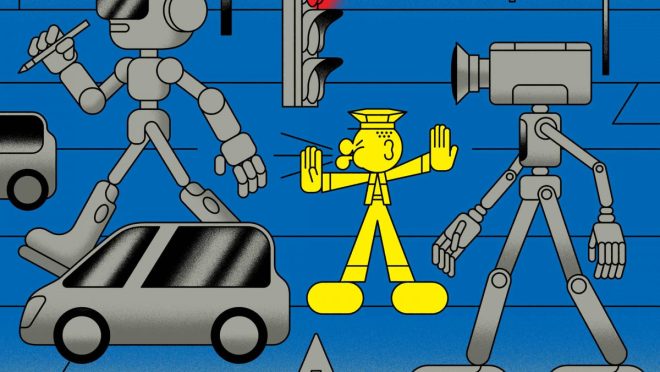Widespread use of AI is inevitable. But regulations can ensure ethical application
If you’re a student, writer, educator, industrialist, graphics designer, programmer, healthcare professional, or in any other profession that requires human intelligence, AI cannot replace you unless you believe you are replaceable
Widespread use of AI is inevitable. But regulations can ensure ethical application
If you’re a student, writer, educator, industrialist, graphics designer, programmer, healthcare professional, or in any other profession that requires human intelligence, AI cannot replace you unless you believe you are replaceable

Ever since the inception of the internet, movies, paintings, novels, music, or, in short, any form of art has told the stories of a distant future where humankind will be doomed and the rise of the machines will eventually come true someday. We saw science fiction movies released one after another, depicting robots taking over the world and dethroning human intelligence in every field possible. I guess the future isn’t that distant now. Or is it?
OpenAI’s ChatGPT was an instant hit when it was released to the public, and the company was the first to kick off the story of the extinction of the human race. The fastest-growing consumer application in history, ChatGPT, is thought to have achieved 100 million monthly active users in January, only two months after its release, according to a UBS report released in February this year. The rise in popularity of ChatGPT has outpaced that of other social media platforms.
ChatGPT took two months to gain 100 million subscribers, whereas Facebook, which debuted in 2004, took five years to get there. It took two and a half years for Instagram, which began in 2010 but was not yet part of Meta, to gain one million downloads. While TikTok completed it in nine months, Twitter had to wait five years. Thus, extinction is imminent, right? But hold your horses. Humans are far from being extinct. I am even somewhat convinced that AI is not as smart as some tabloids and news agencies speculate or even assert.
It’s not just ChatGPT that created a storm in a cup throughout the world wide web; AIs like Midjourney and Bard also created quite a buzz and added to the conversation of where we are headed as a species. While innovation and discoveries paved the way for humankind to thrive and survive in this ever-changing world of speed and dynamics, what really kept us moving forward was the will to serve the people and not the owners (read: masters) of the said innovative solution.
Electricity has been the most innovative solution we could’ve asked for. It works almost like a thread that keeps everything connected and synced, making room for applications, servers, and machines to respond and react to any given input. It worked because the progress towards electrification took a decent amount of time to reach the masses. If it had reached every nook and cranny with a single click, it might’ve been disastrous for the world at large. Everything takes time, and so should innovative solutions.
But the way AI is marching forward with the amount of vigour we have experienced for the last few months or so, with concerns that humankind might be in danger, it was the right decision for the heavyweights in artificial intelligence to halt the development of strong AI systems in March this year. In an open letter, they express concern about possible dangers and claim that the rush to build AI systems has gotten out of hand.
As far as Bangladesh is concerned, first and foremost, it has to regulate the contents that are being shared predominantly on social media and sporadically in other places. The country has witnessed a surge in mobile purchases and internet penetration as more and more people switch to smart phones and leverage the opportunities found on the internet. This development is a mix of both good and bad signs.
Why? Because people here claim to be internet literate only to share contents of vile or subpar standards. In a divided nation like ours, cutting-edge methods like Deepfakes, which employ AI to edit or produce convincing and, at times, almost realistic audio or video footage that represents people talking about something or acting in ways they never actually did, may undermine the integrity of any individual or community. More often than not, we have seen a minority find himself in a quagmire while the majority plays dirty games behind his back, calling for immediate government action.
Once proper policy, regulation, and implementation are made, the country needs to focus on enhancing public services with AI’s help. During the just-concluded budget session, the ruling party adopted an ambitious plan to set up digital banks. Other actions should include integrating AI with healthcare, agriculture, and ready-made garments, which would reduce costs and save time in the long run. Lastly, educating the people of the country about the ills and ails of AI will require a massive overhaul of the education system and bring about positive change in Bangladesh.
So, if you are a student, writer, educator, industrialist, graphics designer, programmer, healthcare professional, or anything else that requires human intelligence, AI cannot replace you unless you believe you are replaceable.


